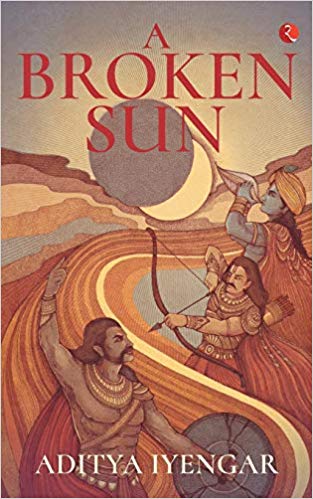This novel is the second of a trilogy on the Kurukshetra War, we are told, and covers the thirteenth to the fifteenth nights of the war. Reading this novel one cannot but admire the courage of the author in stripping the Mahabharata of what he calls ‘the myth part of the story’ and ‘the supernatural weapons or happenings’ (Introduction: p. vii) and turning it into an account of a ‘small, dynastic war’ presumably between two tribes or clans, set in the Iron Age, around 1000 bc. In his view these distract a reader from the ‘epic’s true beauty—the characters that inhabit its text’.
Iyengar’s novel, shorn of the embellishments (if one can call them that), is an account of the men and women involved in the war, and he depicts them in some detail—their rivalries and internal enmities, their loves and miseries—together with accounts of the war itself. This last is done in blood and gore, in some cases the manner of killing, Dronacharya’s head, for example, hanging on to his body by a piece of skin or gristle, of the field itself a viscous slimy place made so by spilt blood and pieces of flesh, rotting in the heat. Iyengar describes that and the overhanging stench of rotting meat and faeces; he carefully details what he says is true of anyone going into battle. ‘All warriors shit before battle. The ones who don’t are lying. I felt a warm river snake its way doen my leg and felt its wet warmth mingle with the rough leather of my sandals. Then, my bowels released their load into the seat of my dhoti’ (p. 44).

